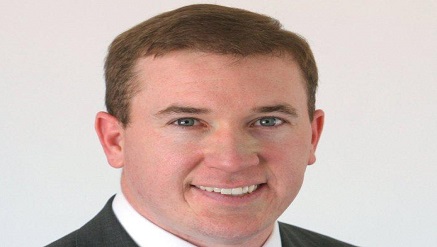E-Financial
Sub Saharan African Equity Issuance Triples to $ 6.4Bn

Thomson Reuters, the world’s leading source of intelligent information for businesses and professionals, has released the quarterly investment banking analysis for the Sub Saharan Africa region and during the first nine months of 2014, fees for Sub Saharan African Investment Banking services totalled $118.6 million
According to estimates from Thomson Reuters/Freeman Consulting, it isan a 30% increase from the previous quarter and the highest quarterly fee total since the first quarter of 2011.
In respect to the Mergers and Acquisitions (M&A) activity, the value of announced M&A transactions involving Sub Saharan African targets reached $12.3 billion during first nine months of 2014, down 47% from the same period last year and the lowest first nine month total in the region since 2004.
Keith Nichols, managing director, Africa, Thomson Reuters, said: “Equity and equity-linked issuance in Sub Saharan Africa totalled $6.4 billion during the first nine months of 2014, more than three-times the value recorded during the same period last year and the highest first nine month total since our records began in the 1970s.”
He added: “Sub Saharan African debt issuance reached US$15.1 billion during the first nine months of 2014, an increase of 53% compared to the same period last year, and the highest first nine month total since our records began.”
Despite the strong third quarter, investment banking fees recorded in the region during the first nine months of 2014 trailed 2% behind the same period last year, at $252.6 million. Fees from equity capital markets underwriting doubled from this time last year to reach US$104.6 million, marking the highest first nine month total in the region since 2007.
Fees from advisory on completed M&A transactions also increased from the first nine months of 2013, growing 13% to $61.9 million. Debt capital markets underwriting fees totalled $36.5 million, 29% less than the same period last year, while syndicated lending fees fell 49% to $49.6 million. Citi topped the Sub Saharan African fee league table during the first nine months of 2014 with a 12% cut of the fees. Standard Bank Group and Barclays followed in second and third positions, respectively.
Speaking about the M&A activity, Mr. Nichols said: “The most targeted nation by value so far this year was South Africa, accounting for 53% of activity, followed by Angola (7.7%) and Mauritius (7.5%). The United Kingdom was the most active foreign buyer in the region. The largest deal in the region during the third quarter of 2014 was Exxaro Resources’ $472 million offer for coal mining company Total Coal South Africa.”
“Theme International Holdings’ $1.0 billion offer for oilfield exploration and production company Everest Hill Energy Group is the largest deal to be announced in the region so far this year. Boosted by these two deals, Energy & Power was the most active sector, accounting for 26% of M&A activity. Standard Bank topped the 3Q 2014 announced any Sub Saharan African involvement M&A Ranking, with $3.1 billion,” he added.
Mr. Nichols commented on the ECM activity during the first nine months of 2014. He pointed out that proceeds raised from follow-on offerings accounted for 70% of ECM activity, while initial public offerings and equity-linked issuance accounted for 17% and 13%, respectively. 84% of deals involved a South African issuer.
“The financial sector was the most active sector for equity issuance in the region, followed by retail. The largest deal so far this year was an $890 million follow-on issue from food and clothing retailer Woolworths, in September. The largest IPO so far this year was oil company Seplat Ltd’s $541 million dual listing on the London and Nigerian Stock Exchanges in April. Citi took the top spot in the Sub Saharan African Equity Capital Markets league table during the first nine months of 2014, with 16% of the market,” he noted.
Speaking about debt capital markets in Sub Saharan African, Mr. Nichols pointed out that the Kenyan government raised $2.0 billion in June, the largest bond issued in the region so far this year.
Barclays took the top spot in the Sub Saharan African Debt ranking for the first nine months of 2014 with $2.2 billion, or a 15% share. Citi and Deutsche Bank followed in second and third positions
E-Financial
Nigerian Banks End Years of Embargo, Resume Intl Transactions on Naira Cards

Nigerian banks have resumed international transactions on naira-denominated debit cards, marking a significant shift in banking operations for customers who rely on foreign payments.

This is coming nearly three years of suspension.
United Bank for Africa (UBA) and Wema Bank, in separate communications to their customers, announced the restoration of international payment services on their naira cards.
In a notice to its customers, UBA said the reactivation of international transactions on its premium naira cards aligns with its commitment to delivering improved and seamless banking experiences.
“We are pleased to inform you that all UBA Premium Naira Cards, including Gold, Platinum, and World variants, are now enabled for international transactions,” the bank stated.
“This means you can now use your Premium Naira Card for global payments — including online shopping, POS, and ATM transactions — with ease and flexibility. If you haven’t used your card recently, now is a great time to rediscover the convenience and prestige that comes with being a UBA premium cardholder.”
Similarly, Wema Bank announced that its customers can now make dollar payments on international platforms using their naira Mastercards.
“Your Wema Naira Mastercard just went global!” the bank said. “Now you can pay in dollars on all your favourite international platforms — Amazon, eBay, AliExpress, Netflix, Spotify, YouTube.”
The development marks a major relief for Nigerian customers who have had to rely on dollar cards or alternative payment methods since most banks suspended international usage of naira cards in 2021 due to foreign exchange scarcity.
E-Financial
Flutterwave Secures 20 more US Money Transmitter Licences

Flutterwave, Africa’s leading payments technology company, today announced the relaunch of its flagship remittance solution, Send App, across U.S. states following its newly acquired Money Transmitter Licences (MTLs).

This comes after Flutterwave secured 20 additional MTLs in the U.S., adding to the 14 licenses the brand has held since 2023.
Altogether, this achievement raises Flutterwave’s total number of direct licenses to 34, allowing the company to operate across many U.S. states and territories without partners or intermediaries.
Users in the U.S. can now send money to Nigeria, Ghana and Egypt, unlocking new remittance corridors that were previously unavailable.
Alongside this expansion, the onboarding process has been streamlined with a quick ID check, making it faster and easier for new users to get started.
Additional improvements include optimised payment support for US-issued Visa and Discover cards, enhanced security measures to safeguard transactions and maintain compliance, and improved in-app flows for a simpler, more efficient sending experience.
This return also highlights Flutterwave’s commitment to delivering a seamless, secure, and regulatory-compliant user experience for all Send App customers in the U.S. Users can now send money from DC, Georgia, Maryland, North Carolina, Michigan, South Carolina, Tennessee.
Other U.S. states and territories where Send App by Flutterwave supports outward remittances include Alaska, Arizona, Arkansas, Delaware, Idaho, Illinois, Indiana, Iowa, Louisiana, Maine, Minnesota, Mississippi, and Missouri, Nebraska, New Hampshire, New Mexico, North Dakota, Oklahoma, Oregon, Puerto Rico, Rhode Island, South Dakota, Utah, Washington, West Virginia, Wisconsin, and Wyoming.
Commenting on the relaunch, Olugbenga “GB” Agboola, Flutterwave Founder and CEO, said, “By expanding our reach and enhancing our services, we are empowering millions of Africans in the U.S. to maintain strong financial ties with their home countries, support their families, and contribute to economic development across the continent. Additionally, we are staying true to our core mission of bridging Africa with the global economy and vice versa.”
Earlier this year, Flutterwave integrated Swap into Send App for seamless FX transactions and strengthened its services in Ghana by securing approval for inward remittance from the Bank of Ghana.
E-Financial
Court Affirms NIBSS Authority to Manage BVN

Federal High Court in Abuja on Friday affirmed the authority of the Nigeria Inter-Bank Settlement System (NIBSS), to manage the Bank Verification Number (BVN), database across the country, in line with the Central Bank of Nigeria (CBN), Act and other relevant banking laws.

This is according to a judgment delivered by Justice James Omotosho on Friday.
Wolemi Esan, senior advocate of Nigeria, NIBSS’s counsel, and Kofo Abdulsalam-Alada, lead counsel for the CBN, among others, had sought a restraining order to prevent any institution in Nigeria from challenging the agency’s statutory authority to maintain and manage the BVN database.
This comes as NIBSS had alleged that Digital Rights Lawyers Initiative filed multiple suits, either directly or through proxies, challenging its authority to manage the BVN database and claiming that such management violates constitutional privacy rights.
However, Justice Omotosho, delivering his judgment, said the BVN does not infringe on the constitutional right to privacy.
“The initiative does not infringe on the constitutional right to privacy but rather serves as a necessary tool for safeguarding public interest and enhancing financial security.
“NIBSS has the power to manage the BVN,” the judge said, citing relevant CBN laws.
“The court grants the reliefs of NIBSS as prayed,” he stated.

 Telecom1 day ago
Telecom1 day agoMTN Nigeria Debuts Game-Changing CPaaS Platform at NextNow Forum

 Telecom2 days ago
Telecom2 days agoNCC Approves MTN, 9Mobile Roaming Collaboration Deal

 E-Financial1 day ago
E-Financial1 day agoNAICOM Issues New Licenses to SanlamAllianz Life, General Insurance

 E-Financial1 day ago
E-Financial1 day agoGTCO to Become First Nigerian Bank to List on London Stock Exchange

 News1 day ago
News1 day agoAMCON Confirms ₦100Bn Sale of Ibadan DisCo Amid Legal Disputes

 E-Financial2 days ago
E-Financial2 days agoWorld Bank Approves Extra $65m for Nigeria’s SPESSE

 E-Business1 day ago
E-Business1 day agoDomain of Deception as Attackers Deploy Spyware Under Guise of Legal Threats

 E-Financial2 days ago
E-Financial2 days agoEcobank Taps Google Cloud to Deepen Financial Inclusion




























